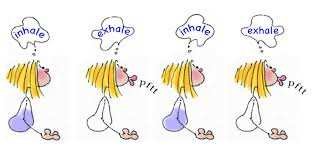
It is hard to avoid stress in today’s fast-paced and demanding world. Stress and anxiety have become common issues for individuals of all ages. Recent studies have shown children are also experiencing high levels of stress, which can have detrimental effects their bodies, emotions and mind.
As parents and caregivers, it is essential to recognize the signs of stress in children and provide them with the necessary tools and techniques to manage it effectively. In this article, we will explore the various ways in which children can destress and develop a healthy relationship with stress. From mindfulness practices to physical activities and creative outlets, we will delve into the strategies that children can utilize to cope with stress and lead a balanced and fulfilling life.
By understanding the importance of destressing at a young age and equipping children with the necessary skills, we can lay the foundation for their future well-being and resilience. So, let us embark on this journey of exploring the ways in which we can help our children destress and thrive in today’s hectic world.
The Need to Relax
All stress begins with fatigue. Thus, the simplest solution to handling stress during a miserable day is to relax.
Sometimes it is hard to just relax. Many people think they can relax while watching television. However, television could be loud. It is loaded with a lot of disturbing images and a lot of commercials. I will tell you, there are better ways to relax.
Watching television is not a recommended method of relaxation by experts. Though television brings some form of momentary escape from what is causing the stress, you will soon find yourself feelings fatigue and guilty after the moment of procrastination. The commercials, ads, sounds, and images are always there.
So how do you achieve relaxation? There are many ways we can relax.
In recent studies, experts have determined that heart disease is linked to anger, and irritability is linked to mental stress. Too much stress brings about ischemia that can lead to, or cause a heart attack. Relaxation is therefore very important. Managing your anger and attitude is significant to heart health; and relaxation can help you manage stress.
Relaxation Techniques
Meditation
As modern society continues to place a heavy emphasis on academic achievement and structured schedules, it is becoming increasingly important to prioritize the mental well-being of children. From school stress to social media overload, children today are facing a constant barrage of overstimulation and pressure. As a result, many parents and educators are seeking out alternative methods to help children cope with these challenges.
One approach that has gained significant attention is the practice of meditation. Often seen as a tool for adults, meditation can also have profound benefits for children.
One way of relaxation is meditation. Recent studies show that this method might reduce artery blockage. Artery blockage is a major cause for heart attack and stroke. People practice transcendental meditation by repeating uttering soothing sounds while meditating – this is to achieve total relaxation. The researchers found that practitioners of transcendental meditation significantly reduced the thickness of their arterial wall compared with those who didn’t practice meditation.
Yoga
Yoga is also another method for relaxation. In another study, participants were subjected to several minutes of mental stress. Then they were subjected to various relaxation techniques, such as listening to nature sounds or classical music. Only those who did Yoga significantly reduced the time it took for their blood pressures to go back to normal. Yoga is a form of progressive relaxation.
Breathing
This is one of the easiest methods to relax. Breathing in such a way affects our mind, our moods and our body in a positive way. Simply focus on your breathing, after some time you can feel its effects right away.
There are several breathing techniques that can help you reduce stress.

playtime
Playtime breaks may seem like a trivial aspect of our daily routines, but their significance should not be underestimated. However, research has shown that incorporating play into study schedules can have numerous benefits for children’s physical, mental, and emotional well-being. From boosting creativity and problem-solving skills to reducing stress and improving overall productivity, playtime breaks have proven to be essential for maintaining a healthy school-life balance.
Exercise
Another easy way to achieve relaxation is exercise. If you feel irritated, a simple half-hour of exercise will often settle things down. Although exercise is a great way to lose weight, it does not show you how to manage stress appropriately. Exercise and any other relaxation techniques works well together.
open communication
Effective communication can help ease eratic emotions and stress. Children should be encouraged to share their thoughts, ideas, and emotions in a respectful manner and so foster a healthy relationship with other in their family and in school.
Bedtime routine
Bedtime can be a challenging time for both children and parents. With the busy schedules and constant stimulation of today’s world, it’s easy for children to become overwhelmed and struggle to wind down at the end of the day. However, establishing a soothing bedtime routine can be an effective way to help children destress and get a good night’s sleep. A consistent and calming bedtime routine not only promotes relaxation and better sleep, but it also provides an opportunity for quality bonding time between parent and child.
mindfulness
One effective approach to achieving this is through teaching mindfulness, a practice that involves being fully present and aware in the present moment. By incorporating mindfulness into daily routines and teaching children coping skills, we can help them manage their emotions, reduce stress, and improve their overall well-being.
Massage
One great way of relaxation is getting a massage. To gain full relaxation, you need to totally surrender to the handling and touch of a professional therapist. There are several types of massages that also give different levels of relaxation.
Conclusion
In conclusion, stress is a common and inevitable part of life for both children and adults. However, it is important for parents and caregivers to recognize the signs of stress in children and take proactive steps to help them destress. Whether it is through simple activities like deep breathing or more structured methods like therapy, providing children with the tools to manage and cope with stress can greatly improve their overall well-being and development. By prioritizing their mental health and addressing any underlying issues, we can help our children grow into resilient and emotionally healthy individuals.


